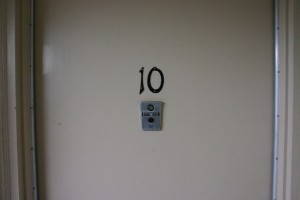 One question a letting agent or landlord may ask themselves is how to show property successfully. In an ideal world, the letting agent would simply open the door to a rental property and the features of the property would speak for themselves, thus leading to a successful letting.
One question a letting agent or landlord may ask themselves is how to show property successfully. In an ideal world, the letting agent would simply open the door to a rental property and the features of the property would speak for themselves, thus leading to a successful letting.
However in reality, the letting market is flooded with properties, all with perceived positives and negatives. In short, the letting agent must put the ground work in to set the property on view apart from the competition!
I have listed below five key rules on how to show a property. These will ensure the tenant gets the best impression of the property, and also of the professional service the letting agent provides. Please read the rules below and put them into practice because as the great Roy Keane says, “fail to prepare, prepare to fail.”
1. Be punctual for the viewing – arrive early!
When you are showing your rental property it is important that you arrive early for the viewing to make sure the place is presentable and to allow you to find your bearings in the property. There is nothing worse than arriving at the same time as the prospective tenant or worse, arriving late for an appointment.
If you are conducting viewings in the colder months, try to arrive a little early to put the heating and lights on so they are coming into a cosy well-lit property. Meet and greet your prospective tenants in a calm friendly manner, as this will put the tenants at ease when viewing. You may be under pressure for time, but remain calm! Remember first impressions last!
2. Clean and tidy property is essential!
Make sure the property is clean and tidy as first impressions of the property will most likely sway your tenant’s decision. Your prospective tenant must be able to visualise living in the property and with clutter lying around, it won’t feel like a blank canvas for the tenant to make their mark.
A good cleaning company can provide a deep clean of the property which is something your tenants will expect before moving in so get this sorted before you conduct your viewings to maximise the letting potential.

3. Know your property inside out!
It is so important to know the property inside out. Would you buy a car off a garage if the salesperson couldn’t tell you what size engine the car had, or what fuel it uses? All too often agents don’t familiarise themselves with the property leading to poor communication of the features and benefits.
Your tenants will have lots of different questions and if you are well prepared, you will be able to answer them there and then. This could be the difference between the tenant renting your property or the next one on their list.
Some questions tenants will ask:
- Is the cooker electric or gas operated?
- What type of TV connection is available and can I bring my own satellite dish?
- How much is the average electricity and gas bill?
- What is the energy rating for the property?
- How much for water charges, waste collection and council taxes?
- Is the shower an electric shower and what is the pressure like?
4. Know the area – local amenities
Some letting agents or landlords may not live in the locality or be too familiar with the local area. It is good practice to familiarise yourself with the local amenities including local schools, shops, sports and social clubs, transport routes or motorways etc.
Depending on the age group of the tenants, you can tailor your pitch to the relevant resources they may be interested in, e.g. information relevant to families would be schools and local clubs.
5. Have important documents at hand
Make sure you have all the relevant documents at hand for your prospective tenants to read or take away with them. This will speed up the decision of the potential applicant and prompt the tenant to accept your property as their new home.
Relevant Documents
- Deposit receipt book
- Application form
- Copy of house rules (If the property is in an apartment complex)
- Terms of rental and additional charges
- Copy of Inventory
This blog is from my experience within the letting industry of how to show a property, from conducting thousands of showings. I hope you find it useful. This is the best way, in my opinion, of how to show a property. Please let me know if it makes your life easier!
<a href=”http://www.blogpingsite.com/”>BlogPingSite</a>



